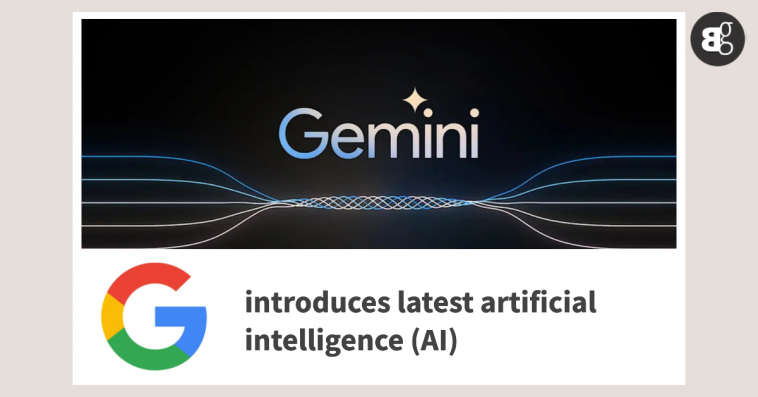In a groundbreaking move, Google has recently unveiled its latest artificial intelligence (AI) model, Gemini, poised to shake up the AI landscape and potentially rival Microsoft-backed OpenAI’s GenAI dominance.
Gemini’s Benchmark Triumph
Google proudly reports that Gemini outshines OpenAI’s GPT-4 across various benchmark tests. The Gemini model demonstrates superior performance in text, code, image, and video tasks, signaling a significant leap forward in AI capabilities.
Gemini Model Variants
- Gemini Ultra: Engineered for highly complex tasks, Gemini Ultra stands as the largest and most capable model in Google’s AI arsenal.
- Gemini Pro: Positioned as the best-suited model for scaling across a broad spectrum of tasks.
- Gemini Nano: Tailored for on-device tasks, offering versatility for a range of applications.
Bard’s Integration with Gemini
Google’s generative AI tool, Bard, takes center stage with its integration into the Gemini model. This move is hailed by Google as “its biggest upgrade yet,” with an advanced Bard version running on Gemini Ultra expected to hit the scene in early 2024.
You may want to Read: Here are 8 amazing ‘AI’ alternatives to ChatGPT for your Business
Bard’s Preference in Blind Evaluations
According to Google’s reports, Bard, operating on Gemini, has emerged as the most preferred free chatbot in blind evaluations with third-party raters. This development positions Bard as a formidable competitor to OpenAI’s ChatGPT.
Dynamics of the AI Race
As the AI race intensifies among tech giants, Google’s Gemini launch injects fresh competition into the arena. Jefferies analysts note that major players like Microsoft, Google, and Amazon are at the forefront of deploying GenAI, leaving startups and hyperscalers leading the charge.
AI Alliance and Industry Dynamics
Interestingly, Meta and IBM recently formed the AI Alliance, comprising over 50 organizations in the AI space. Notably absent are early AI leaders like OpenAI, Google, and Amazon. This alliance could signify a strategic move to counter the influence of these key players.
You may want to Read: Unlocking AI Potential: OpenAI Announces GPT-4 API for Public Integration
Market Response
Despite the revolutionary strides in AI, shares of Google’s parent company, Alphabet, experienced a slight dip of 0.7% in intraday trading following the Gemini launch. Nonetheless, Alphabet’s stock has gained an impressive 46% throughout the year, showcasing sustained investor confidence.
Conclusion
Google’s Gemini AI model marks a pivotal moment in the ongoing AI race, challenging the dominance of OpenAI’s GenAI. The integration of Bard further solidifies Google’s position, presenting a compelling alternative in the evolving landscape of AI technologies.
FAQs:
- Is Gemini available for public use?
- Currently, Gemini is not publicly available, and Google has not announced specific plans for its widespread release.
- How does Bard on Gemini differ from other chatbots?
- According to blind evaluations, Bard on Gemini is reported to be the most preferred free chatbot compared to leading alternatives, showcasing its advanced capabilities.
- What sets Gemini Nano apart from other variants?
- Gemini Nano is specifically designed for on-device tasks, offering a compact and versatile solution for various applications.
- Are there any collaborations expected with the AI Alliance?
- As of now, Google and other major AI leaders are not part of the AI Alliance formed by Meta and IBM.
- What impact does Gemini’s launch have on Alphabet’s stock?
- Despite a slight intraday dip, Alphabet’s stock has gained nearly 46% this year, indicating positive market sentiment towards the company’s AI endeavors.




